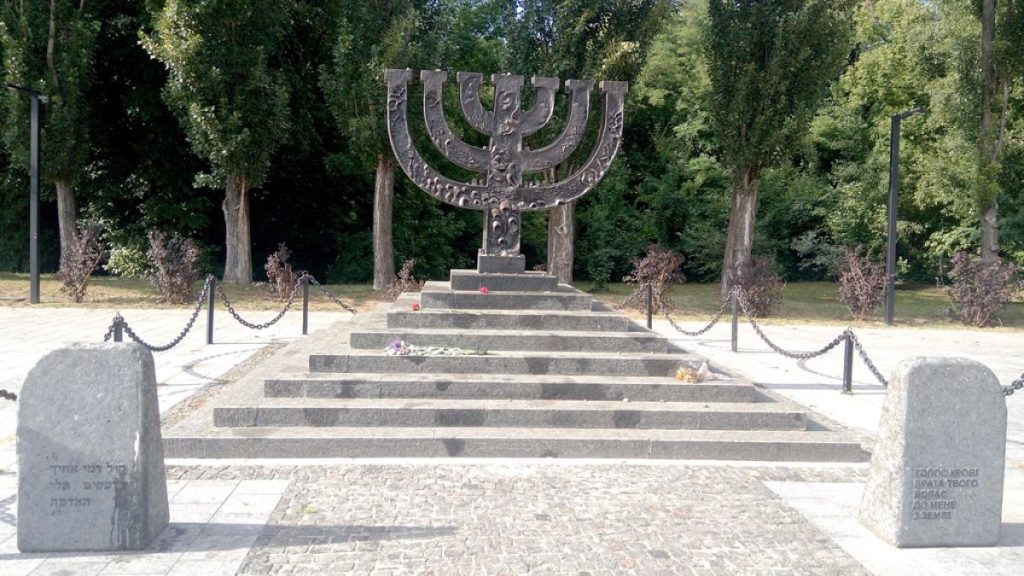UNESCO’s recent designation of “provisional enhanced protection” to the Odesa Literary Museum and the Babyn Yar Memorial in Kyiv underscores the critical role of international cooperation in safeguarding cultural heritage during times of conflict. This heightened protection, granted under the 1999 Second Protocol to the Hague Convention, prohibits any military use of these sites or direct attacks against them. Any violation constitutes a grave breach of international law, potentially leading to prosecution in international courts. This action aims to shield these invaluable cultural sites from the ongoing destruction wrought by the war in Ukraine, a conflict that has already significantly impacted hundreds of historical, religious, and cultural landmarks.
The Babyn Yar Memorial holds immense historical significance as the site of a horrific Nazi massacre in 1941, where over 33,000 Jews, Roma, and Soviet prisoners of war were systematically murdered. The memorial serves as a poignant reminder of the atrocities committed during the Holocaust and stands as a testament to the enduring importance of remembrance and reconciliation. Last year, a Russian missile strike near the memorial, while not directly damaging the existing memorial itself, tragically claimed five lives and damaged a building intended to house a new museum dedicated to the massacre. This incident further highlights the vulnerability of cultural sites in conflict zones and the urgent need for protective measures.
The Odesa Literary Museum, housed in a historic building in the heart of the vibrant port city, is a repository of Ukraine’s rich literary heritage. It showcases a vast collection of manuscripts, books, and personal belongings of celebrated authors with ties to Odesa, including luminaries like Isaac Babel, Anna Akhmatova, and Valentin Kataev. The museum offers a glimpse into the region’s intellectual and artistic history, making it a vital cultural institution deserving of protection. The museum’s collection represents the creative output of generations and its preservation is crucial for the continuity of Ukraine’s cultural identity.
UNESCO’s intervention in granting enhanced protection to these sites is a crucial step towards ensuring their preservation amidst the ongoing conflict. The organization has been actively working to safeguard Ukraine’s cultural heritage since the war began in 2022, recognizing the devastating impact of the conflict on the nation’s cultural landscape. Over 340 cultural sites across Ukraine have been damaged or destroyed, including museums, religious buildings, and historical monuments, representing a profound loss for the country and the world. The enhanced protection status afforded by UNESCO adds another layer of defense against further damage and underscores the international community’s commitment to preserving these vital cultural treasures.
The financial commitment from UNESCO, exceeding $10 million (€9.6 million), is earmarked to support the restoration of damaged cultural sites in Ukraine. This funding is essential for rebuilding and preserving the country’s cultural heritage, ensuring that the scars of war do not permanently erase its rich history. The restoration efforts will require extensive expertise and resources, and international cooperation is crucial in facilitating this complex undertaking. UNESCO’s financial aid will play a vital role in supporting Ukrainian authorities and cultural institutions in their efforts to rebuild and restore these damaged sites.
UNESCO Director-General Audrey Azoulay’s remarks emphasize the importance of international solidarity in protecting cultural heritage during times of war. The enhanced protection granted to the Babyn Yar Memorial and the Odesa Literary Museum not only strengthens their physical security but also serves as a powerful symbol of the global community’s commitment to preserving cultural heritage in the face of conflict. These sites represent the resilience of the human spirit and the enduring power of culture, and their protection is paramount for present and future generations. UNESCO’s actions demonstrate the vital role of international organizations in safeguarding cultural heritage during times of crisis and underscore the importance of collective action in preserving our shared human history.














